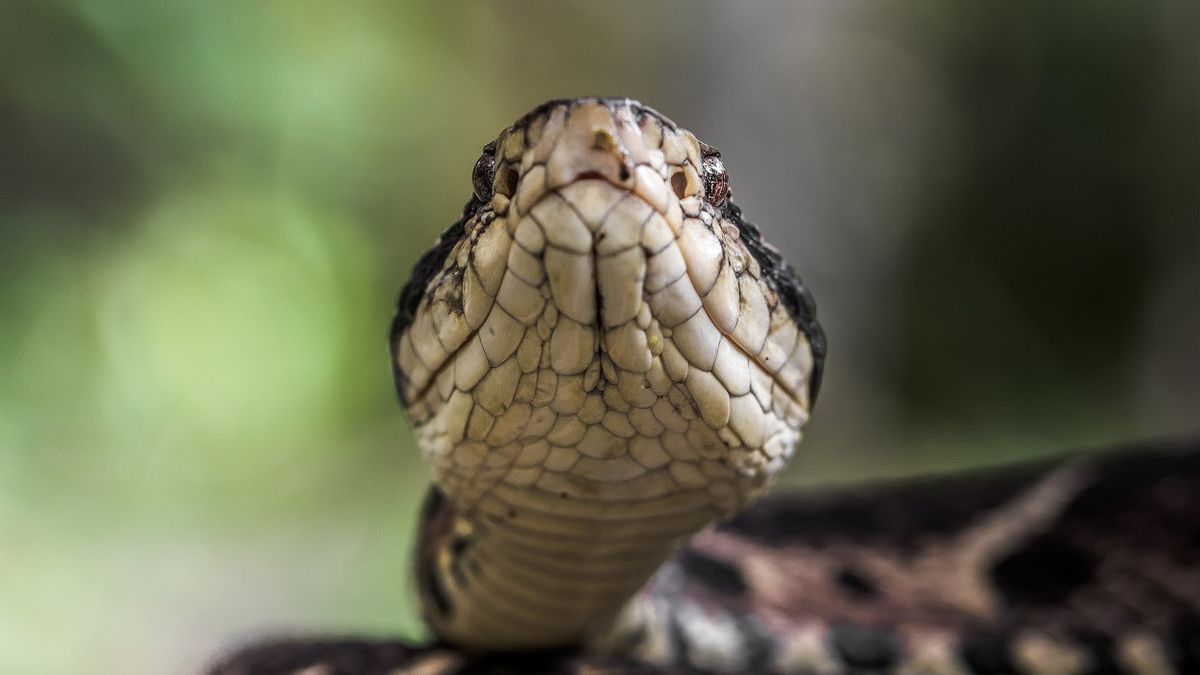JAKARTA - Good news comes from Brazil after Brazilian researchers revealed that a molecule in a snake-like venom could inhibit the reproduction of the coronavirus in monkey cells, the first step that might help find a cure for COVID-19.
A study published in the scientific journal 'Molecules' this month found that a molecule produced by the viper jararacussu inhibits the virus' ability to reproduce in monkey cells by up to 75 percent.
"We were able to show that this component of snake venom was able to inhibit a very important protein of the virus", said Rafael Guido, a professor at the University of Sao Paulo and the study's author, cited from Reuters, September 1.
The molecule is a peptide, or chain of amino acids, that can link to a coronavirus enzyme called PLPro, which is essential for virus reproduction, without injuring other cells.
Already known for their antibacterial qualities, the peptides can be synthesized in the laboratory, Guido said in an interview, making catching or rearing snakes unnecessary.
"We're wary of people who go hunting for jararacussu around Brazil, thinking they're going to save the world. That's not it!" says Giuseppe Puorto, a herpetologist who runs the biological collection of the Butantan Institute in Sao Paulo.
"That's not the case. Is this an important discovery? No doubt about it, but chasing after animals is not the way to solve it. The components found are only a small part of the poison, not the poison itself that will cure the current coronavirus", Guido said, quoted by Sky News.
The researchers will next evaluate the dosing efficiency of the different molecules, whether they are able to prevent the virus from entering cells in the first place, according to a statement from the State University of Sao Paulo (Unesp), which was also involved in the study.
SEE ALSO:
The researchers hope to test the substance of their discovery in human cells, but give no time limit. A move that will bring us closer to finding a cure for COVID-19.
To note, the jararacussu viper is one of the largest snakes in Brazil, measuring up to 6 feet (2 meters) in length. It lives in the coastal Atlantic Forest and is also found in Bolivia, Paraguay, and Argentina.
The English, Chinese, Japanese, Arabic, and French versions are automatically generated by the AI. So there may still be inaccuracies in translating, please always see Indonesian as our main language. (system supported by DigitalSiber.id)













